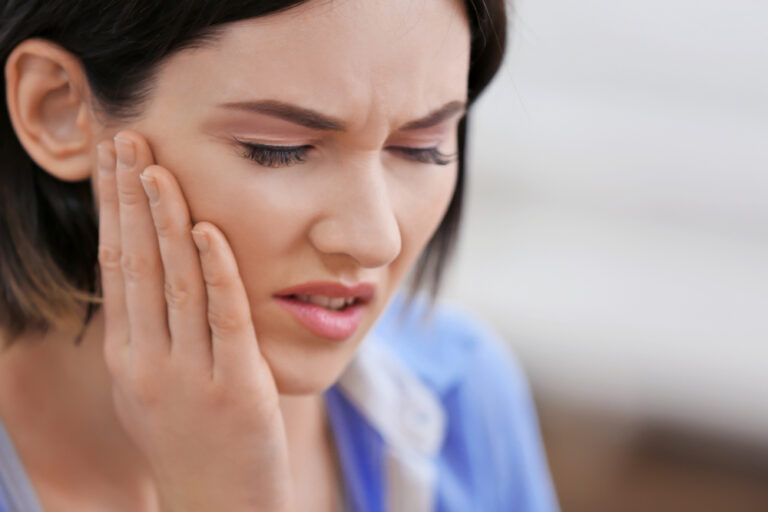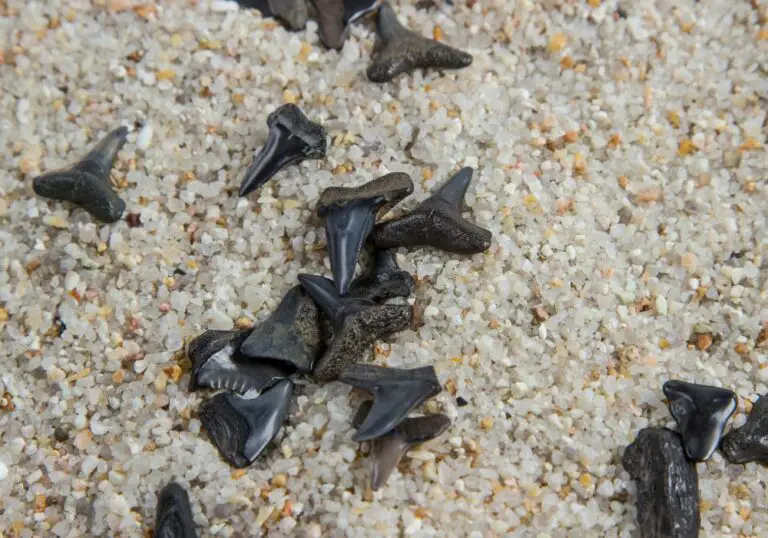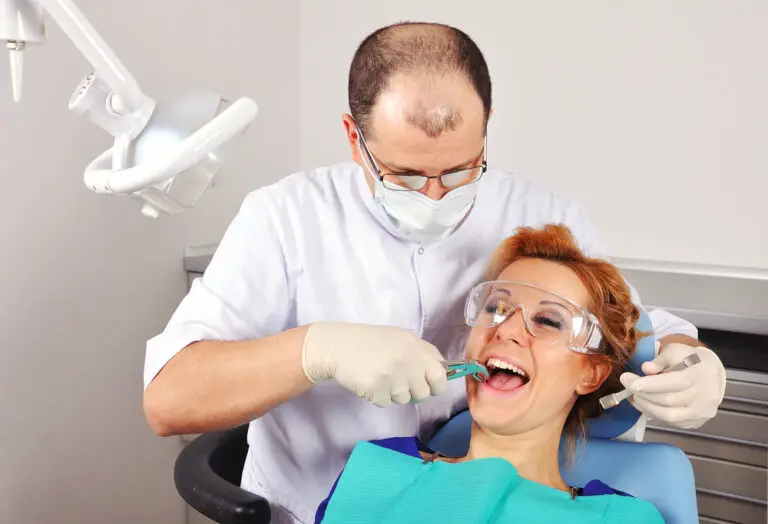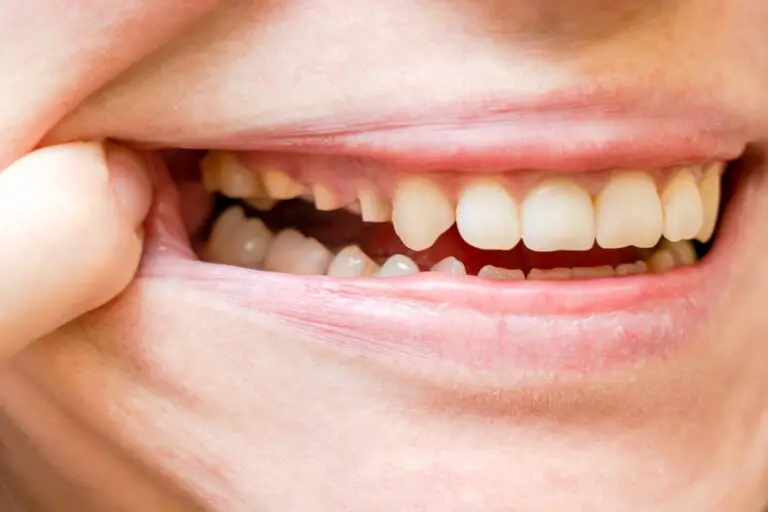If you’re a new puppy owner, you may be wondering about the teething process and whether or not it causes your furry friend pain. The answer is yes, puppies do experience discomfort when losing their baby teeth, but it’s usually not as severe as you might imagine. In this article, we’ll take a closer look at what happens when puppies lose their teeth and how you can help them through this process.
At around 3-4 months of age, puppies start to lose their baby teeth, which are replaced by adult teeth. This process can be uncomfortable for your puppy, as their teeth become loose and fall out. However, most puppies are able to cope with the discomfort and continue to eat, drink, play, and explore as normal. It’s important to note that while some puppies may experience more pain than others, teething is a natural and necessary part of their development.
As a responsible pet owner, there are steps you can take to help your puppy through the teething process. Providing your puppy with safe chew toys can help relieve discomfort and redirect their chewing away from your furniture and belongings. Additionally, you can offer soft foods or soak your puppy’s kibble in water to make it easier for them to eat. By understanding what your puppy is going through and taking steps to support them, you can help ensure a smooth transition to adulthood.
Understanding Puppy Teething
As a new puppy owner, it’s important to understand the teething process that your furry friend will go through. Here are some key points to keep in mind:
- Puppies start teething at around 3-4 weeks old, when their baby teeth start to come in.
- The teething process can be painful for puppies, as their teeth push through their gums.
- Puppies will often chew on anything they can get their teeth on to relieve the pain and discomfort.
- Puppy teething usually ends when their adult teeth come in at around 6 months old.
During the teething process, it’s important to provide your puppy with safe chew toys to help relieve their pain and redirect their chewing behavior away from your furniture and other household items. Make sure the chew toys you provide are appropriate for your puppy’s age and size, and avoid toys that are too hard or small, as these can be a choking hazard.
You may also notice some other symptoms of teething in your puppy, such as:
- Lots of nipping and chewing around the house
- Blood spots on toys
- Inflamed gums
If you’re concerned about your puppy’s teething process or if you notice any unusual symptoms, it’s always a good idea to consult with your veterinarian to ensure your puppy is healthy and happy.
Signs of Teething Pain in Puppies
Teething is a natural process that puppies go through as their baby teeth fall out and their adult teeth come in. While it is a necessary part of their growth, it can also be a painful and uncomfortable experience for them. As a responsible pet owner, it is important to be aware of the signs of teething pain in puppies so that you can provide them with the care and comfort they need during this time.
Physical Symptoms
There are several physical symptoms that can indicate your puppy is experiencing teething pain. These include:
- Swollen or bleeding gums
- Drooling
- Chewing on objects excessively
- Decreased appetite
- Bad breath
- Rubbing their face or mouth on surfaces
- Whimpering or crying
If you notice any of these symptoms in your puppy, it is important to take action to help alleviate their discomfort.
Behavioral Changes
In addition to physical symptoms, teething pain can also cause behavioral changes in puppies. Some common signs of teething pain include:
- Irritability or restlessness
- Increased aggression or biting
- Decreased interest in play or socialization
- Difficulty sleeping
If you notice any of these behavioral changes in your puppy, it is important to be patient and understanding. Remember that they are going through a difficult and uncomfortable experience, and may need extra love and attention during this time.
Overall, the signs of teething pain in puppies can be subtle, but it is important to be aware of them so that you can provide your furry friend with the care and comfort they need. By taking steps to alleviate their discomfort and being patient and understanding during this time, you can help ensure that your puppy grows up healthy and happy.
Why Puppies Lose Their Teeth
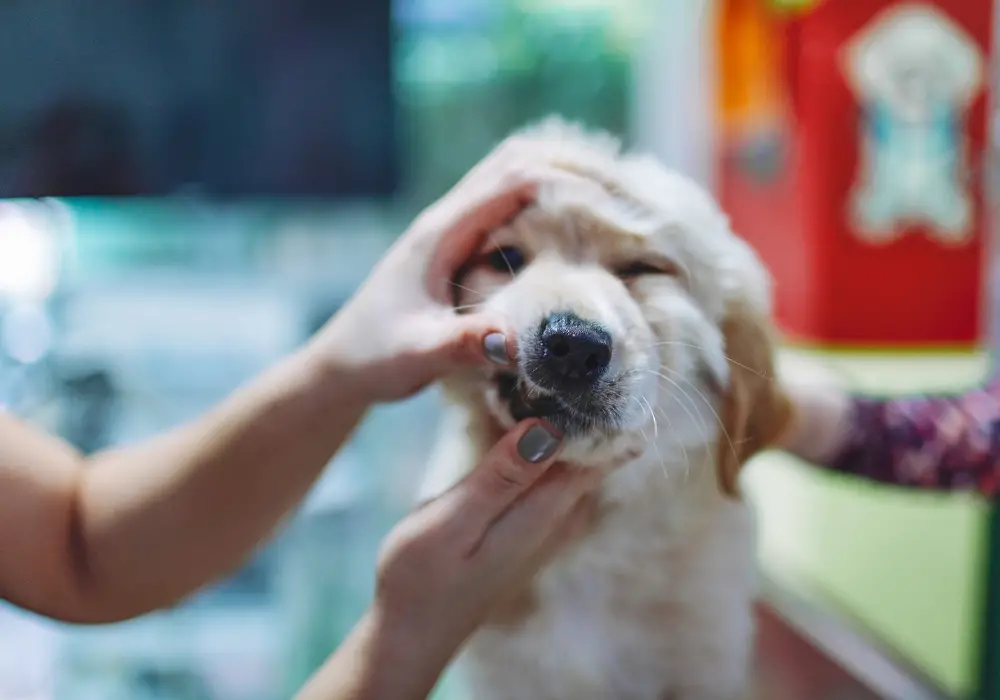
As puppies grow, they go through several developmental stages, and one of them is teething. During this stage, puppies lose their baby teeth, also known as deciduous teeth, and grow their adult teeth. This process usually starts when puppies are around three to four months old and can last until they are six to eight months old.
The reason why puppies lose their teeth is that their adult teeth are larger and stronger than their baby teeth. To accommodate these new teeth, puppies need to shed their baby teeth. The process of losing teeth can be uncomfortable for puppies, but it is a natural and necessary part of their development.
During the teething process, puppies may experience some discomfort, and they may try to alleviate it by chewing on objects. It is essential to provide your puppy with safe chew toys to help relieve their discomfort and protect your belongings from their chewing.
It is also important to note that not all puppies lose their teeth at the same rate. Some puppies may lose their teeth earlier or later than others, and this is normal. However, if you notice that your puppy has not lost any teeth by the time they are eight months old, you should consult with your veterinarian to ensure that there are no underlying dental issues.
In summary, puppies lose their teeth because they need to make room for their adult teeth. This process can be uncomfortable for puppies, but providing them with safe chew toys can help alleviate their discomfort. If you have any concerns about your puppy’s teething process, you should consult with your veterinarian.
How Long Does Puppy Teething Last?
Puppies start teething when they are around 2 weeks old and their first baby teeth start to come in. The teething process can last up to 8 months of age, when all the adult teeth are fully erupted. During this time, puppies will need to chew on appropriate items to relieve the discomfort associated with teething.
Between the ages of 12 and 16 weeks old, puppies begin to lose their baby teeth, and their permanent adult teeth start to appear. This is where the uncomfortable teething process begins. Anyone who has known a teething baby is aware of how painful this stage can be. The same is true for puppies.
During this time, puppies may experience some discomfort and pain as their baby teeth fall out and adult teeth come in. This can cause them to chew on anything they can find to alleviate the pain. It is important to provide your puppy with appropriate chew toys to help relieve their discomfort and protect your furniture and belongings from damage.
It is also important to note that some puppies may experience more pain and discomfort than others during the teething process. If you notice your puppy is having a particularly difficult time, it may be helpful to consult with your veterinarian for additional advice and support.
Puppy Teething Timeline

Puppies go through several stages of teething as they develop from birth to adulthood. Here’s a breakdown of the timeline:
Birth to Three Weeks
At birth, puppies do not have any teeth at all. During this time, they rely on their mother’s milk for nourishment.
Three to Four Weeks
Around three to four weeks of age, puppies start to develop their baby teeth, also known as deciduous teeth. These are the teeth that they will use for chewing until their adult teeth come in.
Four to Six Weeks
By four to six weeks, all of a puppy’s baby teeth should have come in. They usually have about 28 baby teeth in total. During this time, puppies start to explore their environment and may begin to chew on things.
Twelve to Sixteen Weeks
Around 12 to 16 weeks of age, puppies start to lose their baby teeth as their adult teeth start to come in. The incisors, or front teeth, are usually the first to go, followed by the canine teeth and then the premolars. This process can be uncomfortable for puppies and they may experience some pain or discomfort.
Six Months and Beyond
By six months of age, most puppies will have all of their adult teeth. At this point, they should have stopped teething and should no longer be experiencing any discomfort.
It’s important to note that every puppy is different, and the timeline for teething may vary slightly from dog to dog. If you have any concerns about your puppy’s teething process, it’s always best to consult with your veterinarian.
Pain Management Tips
Losing teeth can be a painful experience for puppies. As a responsible pet owner, it’s important to help manage your puppy’s pain during this time. Here are some pain management tips that can help:
Chew Toys
Chew toys are a great way to help your puppy manage pain during teething. Choose toys that are soft and pliable, and avoid toys that are too hard or could break into small pieces. You can also try freezing the toys to provide extra relief for your puppy’s sore gums.
Frozen Treats
Frozen treats are another great way to help manage your puppy’s pain during teething. You can freeze small amounts of peanut butter or yogurt in ice cube trays and give them to your puppy as a treat. Just be sure to monitor your puppy to make sure they don’t choke on the ice cubes.
Puppy Teething Rings
Puppy teething rings are specifically designed to help soothe your puppy’s sore gums. They come in a variety of shapes and sizes, so you can find one that’s just right for your puppy. Be sure to choose a teething ring that is made of safe, non-toxic materials.
Puppy-Safe Pain Relievers
If your puppy is experiencing severe pain during teething, you may want to consider using a puppy-safe pain reliever. Talk to your veterinarian about which pain relievers are safe for puppies, and be sure to follow the dosage instructions carefully.
Remember, teething is a normal part of puppyhood, and with a little bit of extra care, you can help your puppy manage the pain and discomfort that comes with it.
When to Consult a Vet

Losing teeth is a normal part of puppyhood, but it can be a painful process for your furry friend. While some discomfort is to be expected, there are certain signs that indicate your puppy may be experiencing more pain than usual. In such cases, it is important to consult a veterinarian to ensure your pup is not suffering unnecessarily.
Persistent Pain
A little bit of discomfort is normal when puppies lose their teeth. However, if your pup seems to be in constant pain, it may be a sign of a more serious issue. Some signs of persistent pain include:
- Whimpering or crying
- Refusal to eat or drink
- Lack of interest in playtime
- Aggression or irritability
If your puppy is exhibiting any of these symptoms, it’s important to take them to the vet right away. Your vet can examine your pup’s mouth and determine if there is an underlying issue causing the pain.
Missing Teeth
While it’s normal for puppies to lose their baby teeth, it’s important to keep an eye on which teeth are falling out. If your puppy is missing teeth that should still be present, it may be a sign of a problem. Some possible causes of missing teeth include:
- Trauma to the mouth
- Dental disease
- Congenital defects
If you notice that your puppy is missing teeth, it’s important to consult your vet. They can examine your pup’s mouth and determine if there are any underlying issues that need to be addressed.
Infections
When puppies lose their teeth, their gums can become inflamed and tender. In some cases, this can lead to infections. Signs of an infection include:
- Swollen or bleeding gums
- Bad breath
- Discharge from the mouth
- Refusal to eat or drink
If you suspect that your puppy has an infection, it’s important to take them to the vet right away. Your vet can prescribe antibiotics or other treatments to help clear up the infection and prevent it from spreading.
Remember, while some discomfort is normal during the teething process, it’s important to keep an eye out for any signs of excessive pain or discomfort. If you notice anything out of the ordinary, don’t hesitate to consult your veterinarian.
Frequently Asked Questions
Do puppies cry when their teeth fall out?
It’s not uncommon for puppies to whine or whimper a bit when their teeth fall out. This is because their gums may be sore and tender. However, if your puppy seems to be in a lot of pain or is crying excessively, it’s best to consult with your veterinarian.
What are the worst weeks for puppy teething?
Puppy teething can be a difficult time for both you and your furry friend. The worst weeks for puppy teething are usually around 4-6 months of age when the molars start to come in. During this time, your puppy may experience more discomfort and be more prone to chewing on things to alleviate the pain.
How can I soothe my puppy’s teeth loss?
There are several things you can do to soothe your puppy’s teeth loss. You can give them a cold, wet washcloth to chew on, freeze some toys or treats for them to gnaw on, or offer them a frozen carrot or apple slice. Just make sure to supervise your puppy while they’re chewing to prevent choking.
What can you give a teething puppy for pain?
You can give your teething puppy a frozen washcloth, frozen toys or treats, or a frozen carrot or apple slice to help relieve their pain. You can also try using a teething gel specifically designed for puppies, but make sure to follow the instructions carefully and consult with your veterinarian first.
Puppy teething age chart?
Puppies start to lose their baby teeth and grow their adult teeth around 3-4 months of age. The incisors usually fall out first, followed by the canines and premolars. The molars typically come in last, around 6-8 months of age.
What are some home remedies for teething puppies?
Some home remedies for teething puppies include offering them a frozen washcloth, frozen toys or treats, or a frozen carrot or apple slice to chew on. You can also try rubbing their gums with a clean finger or offering them a cold, wet towel to chew on. Just make sure to supervise your puppy while they’re chewing to prevent choking.

